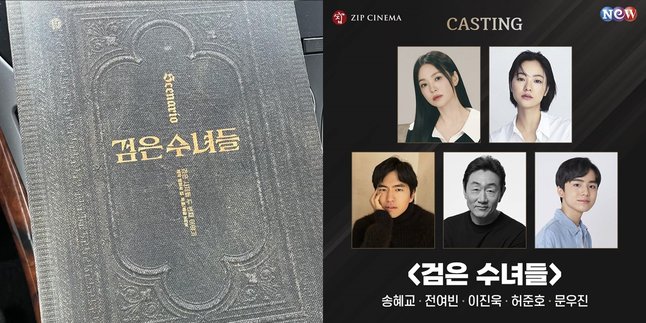Kapanlagi.com - MBTI Test (Myers-Briggs Type Indicator) is one of the most popular personality assessment tools today. In the MBTI test, human personalities are categorized into 16 types based on tendencies among 4 aspects: Introversion (I) vs Extraversion (E), Sensing (S) vs Intuitive (N), Thinking (T) vs Feeling (F), and Judging (J) vs Perceiving (P).
Among the four aspects observed for tendencies, one of the interesting and important aspects is the difference between Intuitive and Sensing types. Understanding MBTI Intuitive vs Sensing can help us recognize how someone processes information and makes decisions.
But what exactly are the Intuitive and Sensing aspects, and how do they compare in the MBTI test? To find out, let's take a look at the following explanation.
1. What is the Intuitive Trait in MBTI

What is the Intuitive Element in MBTI (credit: unsplash)
As mentioned at the beginning, the Intuitive aspect in MBTI refers to how a person processes information. The Intuitive aspect indicates a person's tendency to focus more on patterns, possibilities, and meanings behind data. Someone with an Intuitive aspect tends to see the big picture and future potential rather than the current concrete details.
People with Intuitive types in MBTI are often described as imaginative, innovative, and future-oriented. They tend to enjoy abstract and theoretical ideas, and often seek connections and patterns that are not visible to others. Generally, the MBTI types that include the Intuitive aspect are ENTJ, ENFJ,ENTP, ENFP,INTJ, INFJ, INTP, and INFP.
Some common characteristics of Intuitive types in MBTI include:
- Tending to focus on the big picture.
- Enjoying abstract and theoretical thinking.
- Often seeking hidden meanings and patterns.
- Future-oriented and possibility-focused.
- Tending to be innovative and creative in problem-solving.
2. What is the Sensing Element in MBTI

What is the Sensing Element in MBTI (credit: unsplash)
Meanwhile, the Sensing aspect in MBTI refers to the preference for processing information through the five physical senses. Individuals with a Sensing type tend to focus on concrete realities, specific details, and direct experiences rather than abstractions or possibilities.
People with a Sensing type in MBTI are often described as practical, realistic, and fact-oriented. They tend to trust information that they can see, hear, touch, smell, or feel directly. The MBTI types that include the Sensing aspect are ESFJ, ESTJ,ESFP, ESTP,ISFJ, ISTJ,ISFP, and ISTP.
In the context of MBTI Intuitive vs Sensing, Sensing types are more interested in what is real and observable at the moment. Some common characteristics of Sensing types in MBTI include:
- Focus on details and concrete facts.
- Enjoy direct and practical experiences.
- Tend to be realistic and pragmatic.
- Oriented towards the present and what can be observed.
- More likely to trust experiences and tangible evidence rather than theories.
3. Comparison of MBTI Intuitive vs Sensing

Comparison of MBTI Intuitive vs Sensing (credit: unsplash)
When comparing MBTI Intuitive vs Sensing, it is important to understand that these two preferences represent different ways of processing information and viewing the world. This means that neither is better or worse; both have their own strengths and challenges.
However, specifically, the Intuitive and Sensing aspects in MBTI play a significant role in a person's behavior. In particular, the Intuitive and Sensing aspects will determine a person's attitude in decision-making and their communication habits.
Comparison of MBTI Intuitive vs Sensing in Decision Making
In the context of decision-making, individuals with the Intuitive type are usually more inclined to rely on intuition and consider various possibilities that lie ahead, while those with the Sensing type prefer to refer to concrete facts and experiences they have had in the past.
This difference in approach can lead to significant variations in how they solve problems and design plans to achieve their goals.
Comparison of MBTI Intuitive vs Sensing in Communication
The communication that occurs between Intuitive and Sensing types can often pose significant challenges in the context of MBTI understanding related to the differences between Intuitive and Sensing.
Individuals with the Intuitive type may feel frustrated with the Sensing type's tendency to focus on small details in discussions, while on the other hand, Sensing individuals may feel that the approaches and thoughts of Intuitive types are too abstract, unfocused, or even considered impractical to apply in real situations.
That is among the explanations regarding the comparison of the MBTI Intuitive vs Sensing aspects. Hopefully, it is useful, adds insight, and can satisfy your curiosity all this time.
(kpl/psp)
Disclaimer: This translation from Bahasa Indonesia to English has been generated by Artificial Intelligence.















